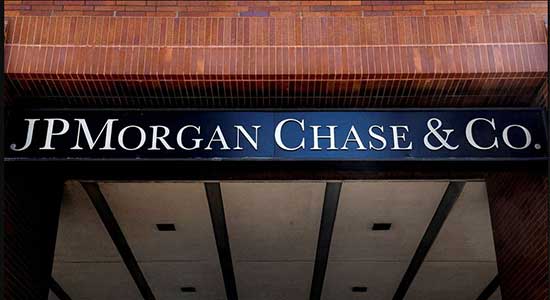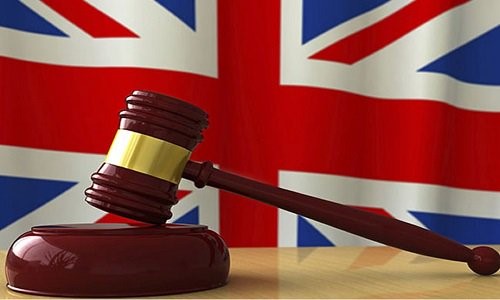INTERNATIONAL 11/03/2022
JP Morgan Tells UK Court: Malami Contradicting Himself On OPL 245 Deal

JP Morgan Chase Bank (JP Morgan) says Abubakar Malami, Nigeria’s attorney general, is contradicting himself on the OPL 245-related case in the UK commercial court.
The bank, which made its opening submissions for trial at the Business and Property Courts of England and Wales Commercial Court, said the Malami position is contradictory to the case being presented by the claimant, which is the Federal Republic of Nigeria (FRN).
Nigeria is suing JP Morgan Chase for its involvement in the resolution agreement and subsequent payments made in relation to the award of OPL 245 to Malabu Oil & Gas Ltd.
The country is seeking a compensation of $1.7 billion.
Federal government’s pleading, made before the UK court, claims that JP Morgan and Mohammed Bello Adoke, Nigeria’s minister of justice, were involved in a “fraudulent and corrupt scheme” which led to the resolution agreement and payments.
However, in its opening submission for trial, JP Morgan denied any wrongdoing on its part and said the claimant does not have substantial evidence to prove that Adoke was involved in a fraudulent scheme.
According to the 123-page opening submission seen by TheCable, JP Morgan said Nigeria “has no direct evidence in support of its case that there was a fraudulent and corrupt scheme as alleged” against Adoke and the bank.
‘MALAMI’S DOUBLESPEAK’
One of the key anchors for Nigeria’s case is that Adoke took bribes to “cause” the consummation of the resolution agreement. But the bank argues that this is not the case, and the claimant does not have evidence to prove its claims.
The suit, which was authorised by Malami, claims that fraud and corrupt practices were involved in the consummation of the agreement between the parties involved.
However, in a letter to President Muhammadu Buhari, on the same matter, the attorney-general said there is insufficient evidence to prove fraud or corrupt practices.
The bank told the court that while Malami seemed to be pursuing the case at the UK court, he holds an entirely different position on the same case, back in Nigeria.
“Indeed, it seems that the current Attorney-General, Mr Malami (who has authorised the pursuit of the present proceedings), has doubts about the wisdom of seeking to pursue the criminal prosecutions,” JP Morgan told the court.
“He [Malami] wrote a letter to President Buhari dated 27 September 2017, stating that there is insufficient evidence to support allegations that the Resolution Agreements were part of a fraudulent and corrupt scheme. That, obviously, is the polar opposite of the case being run by the FRN in these proceedings.”
In a previously considered matter, Malami had written to Buhari that “the agreement” which he is now suing against “was executed by the highest authority in Nigeria and remains sacrosanct unless it is eventually set aside by the decision of a competent court of law… The above commitments are binding on the FGN.”
No competent court has overturned the agreement, JP Morgan argues.
‘MALAMI UNDERMINING NIGERIAN COURT IN UK’
Malami’s decision to also pursue the case at a UK court despite a ruling by a Nigerian court in favour of Adoke is seen as undermining the Nigerian legal system by its own attorney general.
According to the documents before the court, Adoke launched legal proceedings challenging his prosecution, and on April 13, 2018, the Nigerian Federal High Court “granted declarations to the effect that Mr Adoke could not be held personally liable in respect of the payments to Malabu (and the giving of instructions to JPMC to make them) because he was merely carrying out the lawful directives and approvals of the President”.
Despite the ruling of the Nigerian Federal High Court to absolve Adoke, Malami and his team are praying the UK court to deliver a counter judgment.
Adoke has repeatedly denied any wrongdoing and has been vindicated by courts in Nigeria and Italy.
‘TENDERED E-MAIL ALREADY A SUBJECT OF CRIMINAL TRIAL’
The e-mail tendered by the federal government purportedly sent to JP Morgan by Adoke from a private account is a subject of criminal forgery trial in Nigeria — authorised by the same Malami.
Adoke had petitioned the police after the e-mail surfaced in the media.
Police investigation narrowed down on Olanrewaju Suraju, the chairman of HEDA Resource Centre, the NGO that petitioned against Adoke and helped kickstart the OPL 245 trial in Italy in 2017 along with its foreign partners.
The Italian court dismissed all allegations of corruption and acquitted all the defendants.
The Italian prosecutors were also investigated for allegedly manipulating evidence in trying to secure a conviction by all means.
In its submission, JP Morgan argues: “There is also a separate point that in 2011 JPMC had received an e-mail from Mr Adoke from a personal e-mail address [email protected]. “A Group” is alleged to be associated with Mr Aliyu, and it is said that JPMC “ought to have known” that there was a connection between Adoke and Mr Aliyu as a result of the e-mail and that this “ought to have” constituted a further red flag (although it is not pleaded as one in Schedules 2 or 3).
“This point goes nowhere: It is not alleged that JPMC actually knew that there was a connection between Mr Adoke and A Group or Mr Aliyu, whether in 2011 or 2013. The argument appears to be that JPMC should, in 2013, when it became aware of the allegations about Mr Aliyu and A Group, have cast its collective mind back two years to recall an e-mail apparently sent by Mr Adoke from a Yahoo e-mail address which might have been associated with A Group. That is far-fetched.
“Anyway, Mr Adoke apparently denies sending the e-mail and has claimed it is a forgery. Curiously, this allegation has triggered a criminal prosecution in Nigeria against the director of HEDA Resource Centre, a Nigerian NGO, for allegedly circulating the A Group e-mail on Twitter and Facebook knowing it to be false. This prosecution has been specifically authorised by the department of Attorney-General Malami, who has also authorised the present proceedings in which the e-mail is positively relied on by the FRN.
“JPMC is not able to take a position on whether the e-mail is genuine, but the inconsistent positions adopted by the FRN call out for an explanation.”
Recall that the charge of e-mail forgery against Suraju was withdrawn by the office of the attorney-general after Nigeria’s lawyers advised that it could jeopardise the case against JP Morgan.



